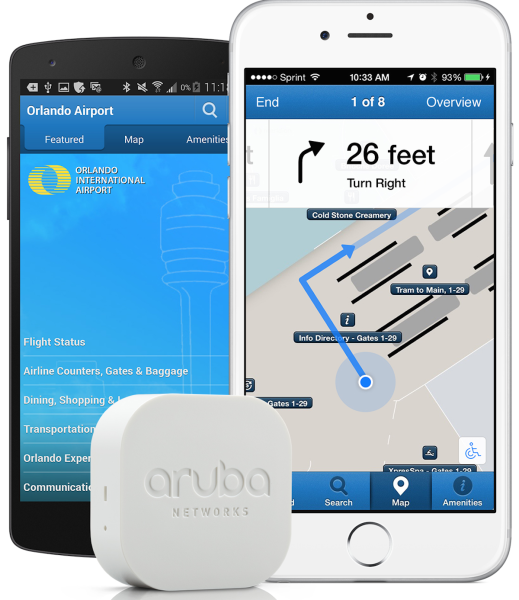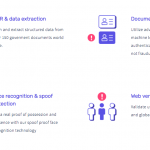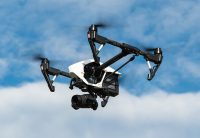HP Enterprise’s Aruba Releases Cloud-Based Beacon Management For Any Store’s WiFi
Company claims it now offers the most complete beacon package out there.
The Hewlett Packard Enterprise-owned Aruba Networks is today releasing version 2.0 of its Mobile Engagement solution, which it says offers the first cloud-based management solution for beacons that can use any in-store WiFi.
To put that into perspective, imagine that beacons are like old-fashioned lighthouses.
Instead of a beam of light, each beacon sends out an identifying signal so that the listening store app on your smartphone can tell you’re standing in, say, the DVD section of a store. Since GPS doesn’t work reliably indoors, that location info can relay your in-store location out via 3/4G or WiFi to a marketer’s server, which can then respond with a discount coupon for a DVD or other promo.
And, like those old lighthouses, beacons are more or less standalones. They use Bluetooth Low-Energy (BLE) short-range connectivity, good for pinging a nearby customer, but not so good for IT departments of big retailers to manage dozens of beacons in each store.
It’s for this reason that IT departments for large retail chains often resist the idea of beacons, Aruba director of product marketing Jeff Hardison told me.
That’s because they don’t want to travel to, say, hundreds of stores in order to locally manage the beacons. Instead, they want to sit at their desks and manage them via the cloud.
That’s the central problem Aruba intended to solve a year ago, when it first introduced its Mobile Engagement platform.
It’s based on the mobile app platform that Aruba, which builds WiFi systems for retailers, hotels and universities, bought when it acquired Meridian in 2013. In March, Hewlett-Packard announced it had purchased Aruba Networks.
When it launched its Mobile Engagement platform in November of last year, Aruba offered remote beacon management that utilized small devices, called Aruba Access Points. Via USB ports, they could wire-connect to a store’s beacons. The Access Points also had WiFi, so they could talk to the cloud.
Except, Hardison noted, there were a few drawbacks.
First, the store’s IT had to run wires from the beacons to the Access Points. Second, the Access Points used their own version of WiFi for managing the beacons, and couldn’t employ a store’s existing WiFi. This meant the store was installing and/or maintaining two WiFi systems. Finally, the Access Points were fairly expensive, at $500 to $1,000 each.
To fix those problems, the new V. 2.0 Mobile Engagement platform offers a revised device, called a Sensor. Here’s a Sensor and the app for Orlando International Airport:
A Sensor can wirelessly receive (within 25 meters) BLE signals from any beacons within range, and its standard WiFI plays nicely with the store’s. Hardison noted that most retailers have WiFi in each store, even if it’s only for employees. And the Sensors cost about $200 each.
Hardison said that Aruba is the only vendor offering the whole package — its own battery-powered beacons, application software, WiFi support and remote beacon management. Its clients include Levi’s Stadium in San Francisco, the University of Oklahoma (whose use of a beacon system and app for library navigation is shown at the top of this page) and the aforementioned Orlando International Airport.
Other vendors have also begun to address the need to remotely administer beacons. Paris-based Ubudu, to take one example, has released a “mesh beacon” technology that, when connected to WiFi, can also offer remote monitoring.
But Hardison said mesh beacons “are a battery drain.” Beacon oversight systems from competitors like Cisco or Aerohive, he added, “can see beacons but can’t manage them,” plus they don’t offer their own beacons.
In addition to less expensive and more flexible cloud management, Aruba is also today announcing the availability of beacon-focused analytics, which the platform didn’t have before. It shows such data as mobile device types or where beacon-located customers are spending more of their time in the store.
The company is also expanding its app developer partner program for its Meridian Mobile App Platform, the app component of the Mobile Engagement solution, with new support for resellers, training and co-marketing.
(Some images used under license from Shutterstock.com.)
Marketing Land – Internet Marketing News, Strategies & Tips
(47)
















